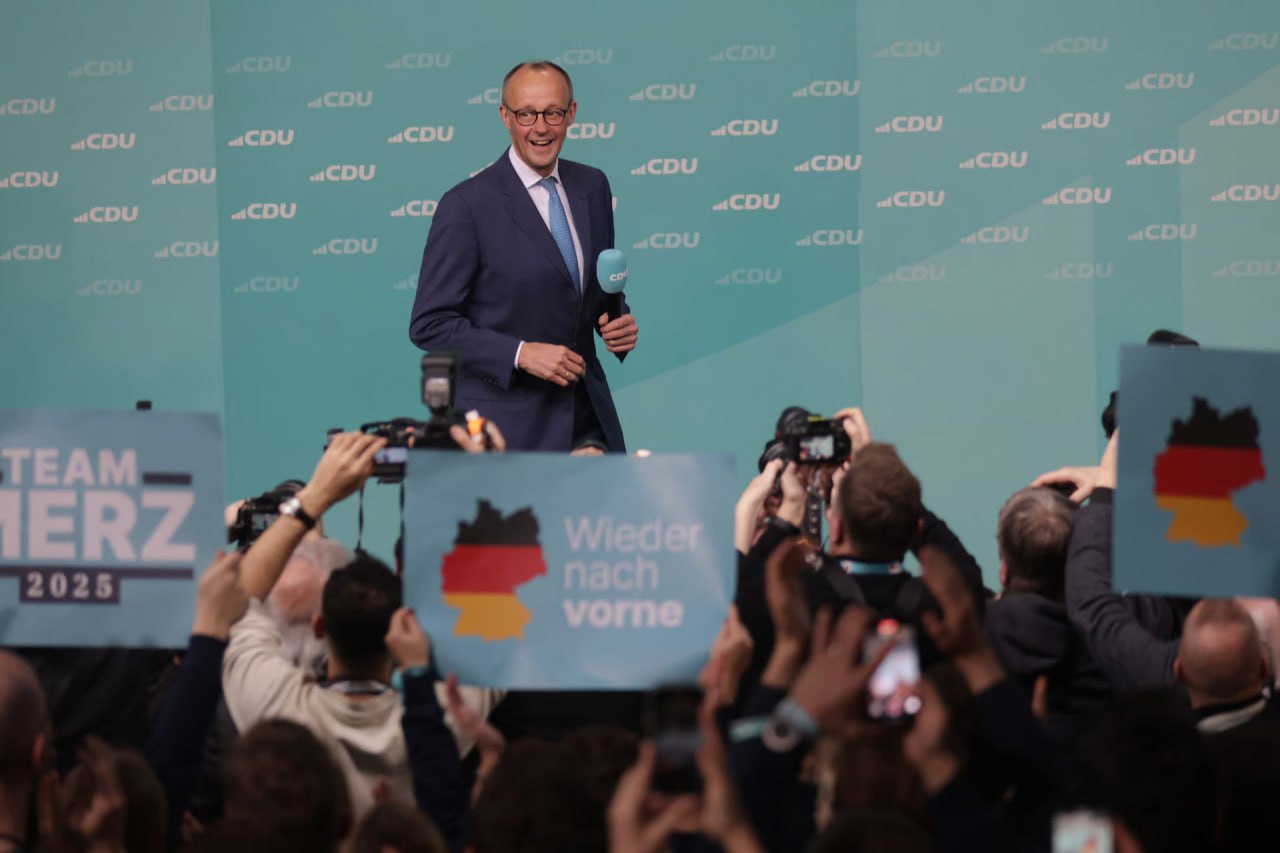Politico: Merz may have become Germany’s most pro-American chancellor, but the U.S. has disappointed
24 February 08:49
Never before in history has a German prime minister – until very recently – been as attached to the United States as Friedrich Merz, the leader of the CDU, the party that won the country’s elections. According to Merz himself, he has visited the United States more than 100 times and considers former U.S. President Ronald Reagan one of his role models. But just when Merz was on the verge of gaining power in Germany, his dear America turned from an irreplaceable friend into an enemy. Politico writes about this, "Komersant Ukrainian" informs.
“This is truly a change of era,” Merz said on the stage of the Munich Security Conference earlier this month after U.S. Vice President J.D. Vance delivered a speech in which he called European center-left parties, not Russia or China, the biggest threat to European security. “If we don’t hear the wake-up call now,” Merz added, “it may be too late for the entire European Union.
According to him, the differences between the US and Europe are taking on a whole new quality.
How did Friedrich Merz rise to political Olympus?
He became a conservative member of the European Parliament in 1989, the year the Berlin Wall fell. Five years later, he was elected to the German Bundestag, where he developed a close relationship with Wolfgang Schäuble, a CDU stalwart and a strong supporter of European Union integration. Under Schäuble’s tutelage, Merz rose through the ranks and was considered a likely candidate for chancellor.
However, his ascent ended in 2002 when he lost a power struggle with the more centrist Angela Merkel. Seeing no role for himself in the CDU under Merkel’s leadership, Merz left the Bundestag a year later to work as a corporate lawyer, while also heading the lobbying organization Atlantik-Brücke, which advocates for transatlantic ties. While working at Atlantik-Brücke, Merz pushed for a trade agreement between the EU and the US and forged closer ties by networking with American politicians and corporate leaders.
During his ten years in the private sector, Mertz served on several corporate boards, including four years at the American asset management company BlackRock, a time he considers one of the happiest of his life.
Merz claims that this work gave him valuable experience outside of politics, but his critics accuse him of simply using his political connections to lobby for powerful interests, making himself a millionaire in the process.
When Merkel stepped down as CDU leader in 2018, Merz saw an opportunity for his return to politics. Merz set out to overturn much of Merkel’s legacy and sought to move the CDU sharply to the right. The party, which wanted a renewal after 16 years of Merkel’s rule and an election defeat by Olaf Scholz’s Social Democratic Party in 2021, eventually elected him as its chairman in early 2022, on the third attempt.
Although Merz and his conservatives won the election on Sunday, polls show that he is not particularly popular with the population. Merz’s wealth and his work for an American investment company are often viewed with suspicion.
“Friedrich Merz is not very well liked, but he is respected,” Günther Oettinger, a former CDU European Commissioner, told Politico.
The most pro-American chancellor has become a frustrated transatlanticist
Until recently, Friedrich Merz’s approach to confronting the Trump administration was largely to deny the scale of the problem. But after the Munich Security Conference, Merz’s tone changed dramatically, and he warned of a transatlantic rift.
“The differences between the United States and Europe are taking on a whole new quality,” he wrote in a note to his supporters after J.D. Vance’s speech in Munich. “It’s no longer just about defense, it’s now about our basic understanding of democracy and open society.”
When a few days later, Trump blamed Ukraine – not the Kremlin – for the conflict and called Volodymyr Zelenskyy a “dictator,” Merz warned supporters that “autocratic behavior of the top of the state” in the United States could persist for a long time.
According to Politico, Friedrich Merz’s change in rhetoric showed how unnerved he is by the Trump administration. And now the question is whether the next German chancellor will be able to steer the European Union – which itself is struggling with the rise of Russia-friendly far-right parties – in a fundamentally new direction.









